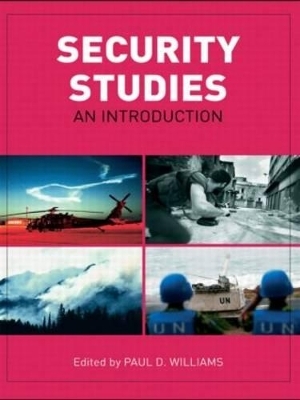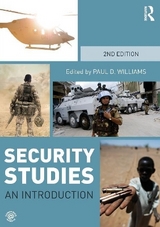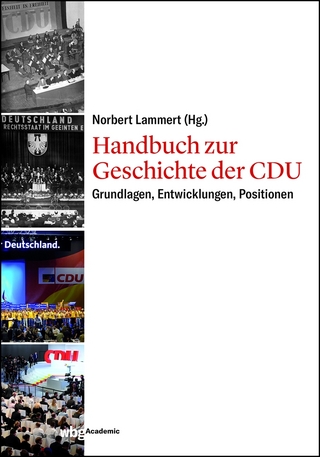
Security Studies
Routledge (Verlag)
978-0-415-42562-9 (ISBN)
- Titel erscheint in neuer Auflage
- Artikel merken
Security Studies is the most comprehensive textbook available on security studies.
It gives students a detailed overview of the major theoretical approaches, key themes and most significant issues within security studies.
Part 1 explores the main theoretical approaches currently used within the field from realism to international political sociology.
Part 2 explains the central concepts underpinning contemporary debates from the security dilemma to terrorism.
Part 3 presents an overview of the institutional security architecture currently influencing world politics using international, regional and global levels of analysis.
Part 4 examines some of the key contemporary challenges to global security from the arms trade to energy security.
Part 5 discusses the future of security.
Security Studies provides a valuable teaching tool for undergraduates and MA students by collecting these related strands of the field together into a single coherent textbook.
Paul D. Williams is currently a Visiting Associate Professor in the Elliott School of International Affairs at the George Washington University, USA. He is author of British Foreign Policy under New Labour, 1997-2005 (Palgrave-Macmillan, 2005), co-author of Understanding Peacekeeping (Polity, 2004) and co-editor of Africa in International Politics (Routledge, 2004) and Peace Operations and Global Order (Routledge, 2005).
1. Introduction Paul D. Williams Part 1: Theoretical Approaches 2. Realism Colin Elman 3. Liberalism Cornelia Navari 4. Game Theory Frank C. Zagare 5. Constructivism Matt McDonald 6. Peace Studies Peter Lawler 7. Critical Theory Pinar Bilgin 8. Feminist Perspectives Sandra Whitworth 9. International Political Sociology Didier Bigo Part 2: Key Concepts 10. Rethinking the Security Dilemma for Dangerous Times Ken Booth and Nicholas J. Wheeler 11. War Paul D. Williams 12. Terrorism Paul Rogers 13. Genocide and Mass Killing Adam Jones 14. Ethnic Conflict Stuart J. Kaufman 15. Coercion Lawrence Freedman and Srinath Rhagavan 16. Human Security Fen Osler Hampson 17. Poverty Caroline Thomas
18. Environmental Change Simon Dalby 19. Health Colin McInnes Part 3: Institutions 20. Alliances John Duffield 21. Regional Institutions Louise Fawcett 22. The United Nations Thomas G. Weiss and Danielle Zach Kalbacher Part 4: Contemporary Challenges 23. International Arms Trade William D. Hartung 24. Nuclear Proliferation W. Pal Sidhu 25. Counterterrorism Paul R. Pillar 26. Counterinsurgency Joanna Spear 27. Peace Operations Michael Pugh 28. The Responsibility to Protect Alex J. Bellamy 29. Private Security Deborah Avant 30. Transnational Organized Crime John T. Picarelli 31. Population Movements Sita Bali 32. Energy Security Michael T. Klare Conclusion 33.What Future for Security Studies? Stuart Croft
| Erscheint lt. Verlag | 26.5.2008 |
|---|---|
| Zusatzinfo | 14 Line drawings, black and white; 12 Tables, black and white; 14 Illustrations, black and white |
| Verlagsort | London |
| Sprache | englisch |
| Maße | 174 x 246 mm |
| Gewicht | 1134 g |
| Themenwelt | Sozialwissenschaften ► Politik / Verwaltung |
| ISBN-10 | 0-415-42562-X / 041542562X |
| ISBN-13 | 978-0-415-42562-9 / 9780415425629 |
| Zustand | Neuware |
| Haben Sie eine Frage zum Produkt? |
aus dem Bereich



